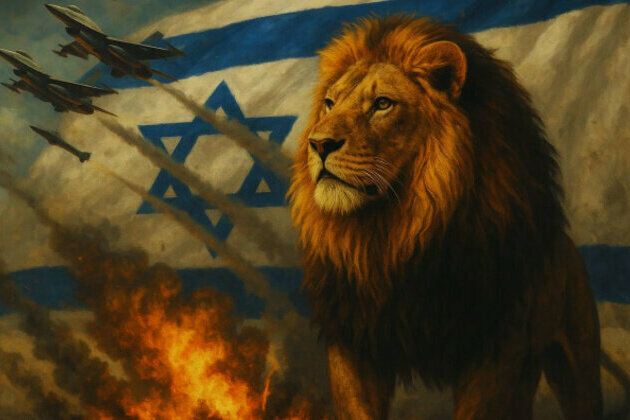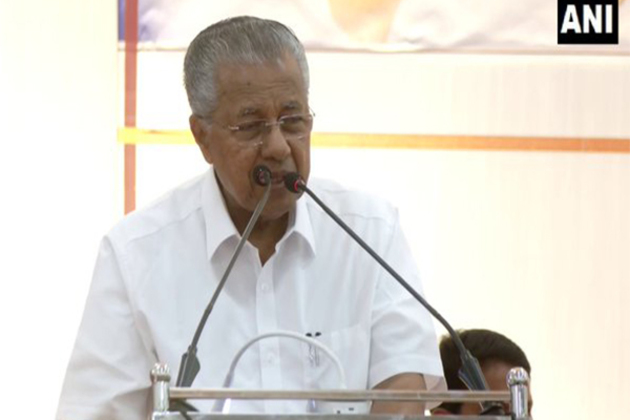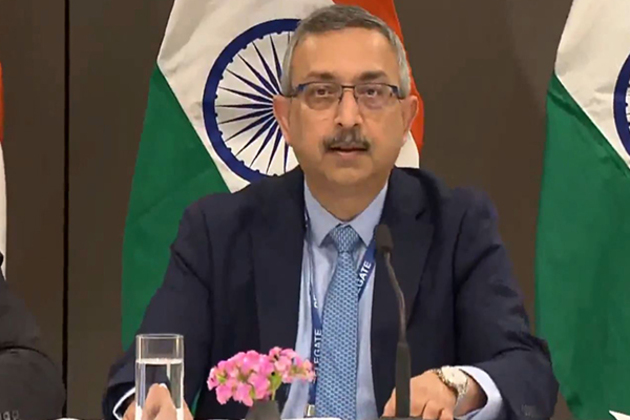Operation Rising Lion: Why and How Israel Attacked Iran
Novinite.com
19 Jun 2025, 03:18 GMT+10

In June 2025, Israel launched what it called "Operation Rising Lion" against Iran, marking a dramatic escalation in Middle Eastern tensions. The strikes, which targeted Iran's nuclear facilities and military infrastructure, represent a calculated gamble by Israeli leadership that has fundamentally altered the regional security landscape.
The Strategic Window: How Israel Could Finally Reach Iran
For years, Israel faced a significant geographical challenge in conducting operations against Iran: the need to traverse hostile airspace or navigate complex international corridors. This changed dramatically with the fall of Syrian President Bashar al-Assad's regime on December 8, 2024, when armed rebels took Damascus and forced Assad to flee the country.
The collapse of Syria's air defense infrastructure created an unprecedented opportunity for Israeli military planners. While Assad has fallen, some conflict and military activity is ongoing, but the centralized Syrian air defense system that had previously protected the corridor between Israel and Iran was no longer operational. With Syrian radar systems and missile batteries either destroyed or abandoned, Israeli jets and missiles suddenly had a clearer path to reach Iranian targets.
This tactical advantage was exploited by Israeli forces six months later. Israel launched "Operation Rising Lion" on June 13, 2025, striking dozens of military targets in Iran, including the country's nuclear program. The strikes killed at least four senior Islamic Revolutionary Guard Corps commanders, including top commander Hossein Salami, with some reports indicating up to 20 senior Iranian commanders were killed.
The timing was particularly significant as CENTCOM commander , that Iran was "weeks away" from nuclear weapons, and the IAEA found Iran non-compliant with its nuclear obligations for the first time in 20 years just one day before the strikes.
The Military Campaign: Precision Strikes and Intelligence Operations
The Israeli operation unfolded in carefully orchestrated phases. The initial wave focused on degrading Iran's ability to respond, targeting radar installations, missile defense systems, and air defense capabilities. Israel's strikes on Iranian nuclear sites killed 78 people and wounded more than 320, according to .
Intelligence played a crucial role in the operation's success. Israeli agents, operating through the Mossad and other intelligence services, had spent years infiltrating Iranian military and nuclear facilities. This extensive intelligence network enabled precision strikes that eliminated key military leaders while they were most vulnerable. Israeli strikes killed at least four senior Islamic Revolutionary Guard Corps (IRGC) commanders, including chief Hossein Salami.
The scale of military leadership eliminated was unprecedented. Iran confirmed that several top commanders and six nuclear scientists were killed in the strikes targeting nuclear facilities, ballistic missile factories and military commanders. Among those killed was Amir Ali Hajizadeh, commander of the IRGC's Air Force and mastermind of Iran's missile program, along with the commanders of the IRGC's drone and air defense units who were meeting in an underground command center.
The strikes extended beyond military targets to Iran's nuclear infrastructure. Israeli strikes hit Iran's biggest uranium enrichment plant, with UN nuclear watchdog officials indicating extensive damage. The targeting was surgical, focusing on facilities involved in uranium enrichment and weapons development programs while systematically eliminating the scientific and military expertise required to advance Iran's nuclear capabilities.
The intelligence component revealed years of preparation. The ability to strike multiple high-value targets simultaneously, including leaders meeting in secure underground facilities, demonstrated deep penetration of Iran's security apparatus. The effectiveness of the strikes forced Iran to replace several military leaders, including the head of the army and the IRGC, disrupting command structures and institutional knowledge.
Political Calculations: Netanyahu's Survival Strategy
The timing of Israel's Iran operation cannot be separated from domestic political considerations. Prime Minister Benjamin Netanyahu, facing ongoing legal challenges and political pressure, has long understood that wartime leadership provides political cover and national unity that peacetime governance cannot.
Netanyahu's corruption trial continued throughout 2024 and into 2025, with him taking the stand in March 2025 to face charges of fraud, breach of trust and accepting bribes in three separate cases. The charges have "" triggering a political crisis that led to five elections in less than four years beginning in 2019.
Having systematically weakened Iran's proxy network - decimating Hamas in Gaza, severely damaging Hezbollah in Lebanon, and securing a temporary US agreement with the Houthis - Netanyahu found himself with Iran's "Axis of Resistance" at its weakest point in decades. The network that Iran had spent nearly half a century constructing was severely damagedafter suffering blows in the Gaza war and the Israel?Hezbollah conflict. While the Houthis continued to disrupt Red Sea shipping despite Trump's May 2025 agreement limiting attacks on US vessels, Iran's ability to rely on its traditional proxy network for retaliation was severely compromised.
This created both an opportunity and a political necessity to target Iran directly. The strategy follows a familiar pattern: external conflict as a means of internal political survival. With Iran's proxies effectively neutralized when Israel launched its strikes - Hamas decimated, Hezbollah leadership eliminated, Assad's Syrian government fallen, and the Houthis bound by their temporary agreement with Washington - Netanyahu could position himself as the defender of Israeli security against the ultimate regional threat while Iran stood isolated and unable to respond through its traditional proxy warfare.
This political calculation proved shrewd: wartime leadership traditionally provides Israeli prime ministers with increased domestic legitimacy and makes removal from office politically difficult, even amid ongoing legal proceedings. The Iran operation represented Netanyahu's attempt to secure his political survival by positioning himself as indispensable during an existential national security crisis.
The Nuclear Imperative: Existential Concerns and Strategic Preemption
Israel's longstanding doctrine of preventing regional nuclear proliferation drove much of the strategic calculus behind the strikes. Iranian nuclear development, whether for peaceful purposes or weapons development, represents what Israeli leadership views as an existential threat to the Jewish state.
The nuclear dimension adds urgency to Israeli planning. Unlike conventional military threats, nuclear capabilities create permanent shifts in regional power dynamics. Once achieved, nuclear weapons provide deterrence that makes conventional military action far more dangerous and politically complicated.
where further delay would make prevention impossible. The window for military action was closing as Iranian facilities moved deeper underground and security measures intensified.
Regime Change Ambitions: Long-term Strategic Goals
Beyond immediate military objectives, Israeli strikes appear designed to contribute to broader regime change goals in Iran. Both Israeli leadership and the Trump administration have expressed support for replacing Iran's Islamic government, viewing the current regime as inherently hostile to regional stability and Western interests.
However, regime change through external military pressure alone faces significant historical and practical limitations. Iran's political system, while unpopular in some segments, maintains substantial institutional resilience and nationalist support when facing foreign attack.
The strikes may actually strengthen the regime's position domestically by validating its narrative of external threats and justifying increased security measures. Popular anger over civilian casualties and infrastructure damage could rally public support around the government despite underlying economic and political grievances.
Strategic Consequences and Limitations
Israel's operation achieved significant tactical success in degrading Iranian military capabilities and nuclear infrastructure. The precision of the strikes and the elimination of key military leaders represent a substantial blow to Iranian strategic planning and operational capabilities.
However, the long-term strategic picture remains complex. While Israel may have delayed Iran's nuclear program, the attacks provide additional motivation for Iranian nuclear development as a deterrent against future strikes. The destruction of civilian infrastructure and military casualties create powerful incentives for revenge and nuclear acceleration.
Iran's immediate response demonstrated both its remaining capabilities and the limits of Israeli defensive systems. Iran launched dozens of ballistic missiles in retaliation for Israel's strikes on its nuclear facilities, with some missiles reaching Israeli population centers despite defensive efforts.
International Implications and Future Scenarios
The Israel-Iran conflict occurs within a broader context of shifting great power relationships and regional alliance systems. While the Trump administration has expressed support for Israeli actions, the international community faces pressure to prevent further escalation that could destabilize global energy markets and trigger wider regional conflict.
to halt the bombing campaign by reaching a deal on the nuclear program, suggesting that diplomatic solutions remain possible despite military escalation.
The ultimate success of Israeli strategy depends on whether the strikes lead to meaningful changes in Iranian behavior or merely postpone inevitable nuclear development while strengthening Iranian resolve. Historical precedent suggests that military strikes alone rarely achieve lasting strategic objectives without accompanying political and diplomatic frameworks.
Summary
Israel's attack on Iran represents a calculated gamble based on temporary tactical advantages and pressing political needs. The operation's immediate military success is undeniable, but its long-term strategic value remains uncertain. The strikes may have delayed Iranian nuclear development and weakened its conventional military capabilities, but they have also intensified the underlying conflict and potentially accelerated the timeline for Iranian nuclear weapons development.
The challenge for Israeli leadership is translating tactical military success into lasting strategic advantage. This requires not just continued military pressure but also diplomatic initiatives, international cooperation, and regional alliance building that can create sustainable security arrangements. Without such broader strategic frameworks, military action alone may prove insufficient to address the fundamental security challenges that motivated the strikes in the first place.
The Israel-Iran conflict has entered a new phase characterized by direct confrontation rather than proxy warfare. The consequences of this escalation will likely shape Middle Eastern security dynamics for years to come, with implications extending far beyond the immediate combatants to global energy markets, international alliance systems, and nuclear non-proliferation efforts worldwide.
 Share
Share
 Tweet
Tweet
 Share
Share
 Flip
Flip
 Email
Email
Watch latest videos
Subscribe and Follow
Get a daily dose of Greek Herald news through our daily email, its complimentary and keeps you fully up to date with world and business news as well.
News RELEASES
Publish news of your business, community or sports group, personnel appointments, major event and more by submitting a news release to Greek Herald.
More InformationInternational Business
SectionFoxconn iPhone exports from India now mostly headed to the US
NEW DELHI, India: Amid mounting U.S.-China trade tensions, Apple has sharply increased iPhone shipments from India to the United States,...
US: China lags in AI chips, but catching up fast
WASHINGTON, D.C.: The U.S. government estimates that Huawei will only be able to manufacture up to 200,000 advanced AI chips next year—well...
Ryanair CEO gets maximum bonus as Ryanair profits soar
DUBLIN, Ireland: Ryanair chief executive Michael O'Leary received a total pay package of 3.83 million euros for the financial year,...
Air India reduces international services on wide-body aircraft by 15%
Gurugram (Haryana) [India], June 19 (ANI): Air India has reduced its international services on wide-body aircraft by 15 per cent for...
US Fed keeps benchmark interest rate unchanged
Washington DC [US], June 19 (ANI): The US Federal Reserve on Wednesday decided to keep benchmark interest rate unchanged at a range...
"Very sorry, all we can do is to grieve with the families": Air India Chairman after AI171 crash
New Delhi [India], June 18 (ANI): Air India and Tata Sons Chairman N Chandrasekaran on Wednesday publicly expressed his sorrow over...
Mediterranean
SectionDebt fears drive fund outflows from US, inflows to Europe
NEW YORK CITY, New York: Investor confidence in U.S. markets is showing signs of strain as global funds redirect billions toward Europe...
Former student kills 9, then himself, in Austrian school
GRAZ, Austria: Austria is reeling after a tragic school shooting in Graz that left ten people dead, including the gunman, and 12 others...
Resident Commissioner to support Keralites returning in wake of Israel-Iran war: CM Pinarayi Vijayan
Thiruvananthapuram (Kerala) [India], June 19 (ANI): Kerala Chief Minister Pinarayi Vijayan on Wednesday instructed the Resident Commissioner...
"We're not looking for long-term war": Trump reiterates Iran cannot have nuclear weapon
Washington DC [US], June 19 (ANI): US President Donald Trump on Wednesday said that he was not looking for a long-term war with Iran....
Operation Rising Lion: Why and How Israel Attacked Iran
In June 2025, Israel launched what it called Operation Rising Lion against Iran, marking a dramatic escalation in Middle Eastern tensions....
India, Croatia signed four key agreements on agriculture, science and tech, cultural exchange and Hindi Chair at University of Zagreb
Zagreb [Croatia], June 19 (ANI): Prime Minister Narendra Modi's maiden visit to Croatia marks a significant milestone in the India-Croatia...












